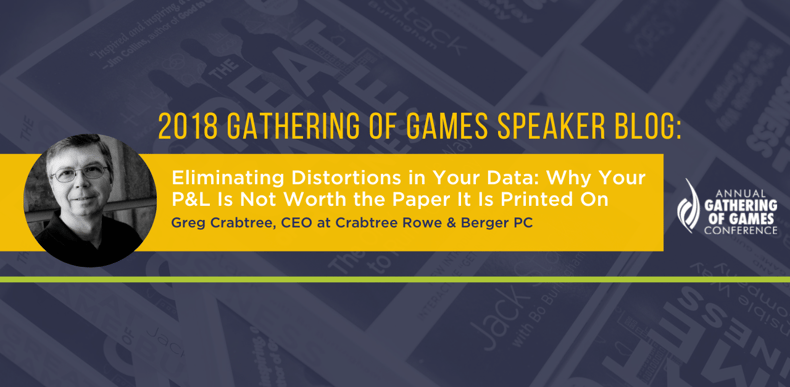
It is not uncommon for every business owner to start a discussion about their P&L statement with “well, that net income number is not correct,” then go on to list all of the things they would change if their accountant didn't make them do it that way.
Business owners need to take back responsibility and control of their financial reporting in financial literacy training and follow these simple principles to make their P&L a useful document.
Distortion #1 – Owner Compensation Distortion
You should get paid a market-based wage for what you do, and a return (dividend) for what you own. Most entrepreneurs mix their ownership with their job role in the business, not realizing that it creates significant distortion in the true profitability of the business.
If you are an S corporation, you may be motivated to avoid payroll taxes on wages and just take distributions. Unfortunately, the IRS knows about that and will give you a nasty payroll tax bill and a headache to boot.
If you have multiple shareholders working in the business, make sure everyone is being paid for the job they do and not getting a paycheck based on their ownership. As an owner, you get to pick any job you want to do, but the market picks your pay. You may choose to over or under pay yourself, but all that does is create distorted net income on the P&L.
Take action: Stop thinking small and pay yourself the right salary so your P&L tells you the true economic output of your business. If you need to take distributions beyond your wage, we need to discuss why you are consuming more than you make!
Distortion #2 – Revenue is Vanity!
When entrepreneurs get together, I notice that they all talk about revenue but rarely about profit. I want you to stop talking about revenue internally and become a “Gross Margin” talker. My definition of Gross Margin is Revenue minus any Direct Costs that do not include labor. My reasoning for this is most direct costs are really “pass through” costs that you get paid for in advance or get terms from the vendors, essentially meaning you do not pay for them until you get paid.
Think of a construction contractor. They may tell you they did $20 million in revenue, but they really had $17 million in material and subcontractors. They are really a $3 million services business. The same would be true for a marketing firm. I want them to celebrate a $50,000 services contract that uses no freelancers more than a $100,000 contract that uses $80,000 of subcontractors.
It may hurt your pride a bit to talk about Gross Margin instead of Revenue, but you will start to realize that Gross Margin is the true top line of your business engine. It will make your marketing strategy simpler in determining what your customer looks like and your team will understand they perform in relation to Gross Margin, not Revenue.
Take action: Teach your team to think Gross Margin. If your accounting data does not report on Gross Margin now, adjust your bookkeeping process to never report on Revenue without Gross Margin, even if you have to use a good enough estimate.
Other Articles You Might Like:
.png)








.png)




-5.png)

